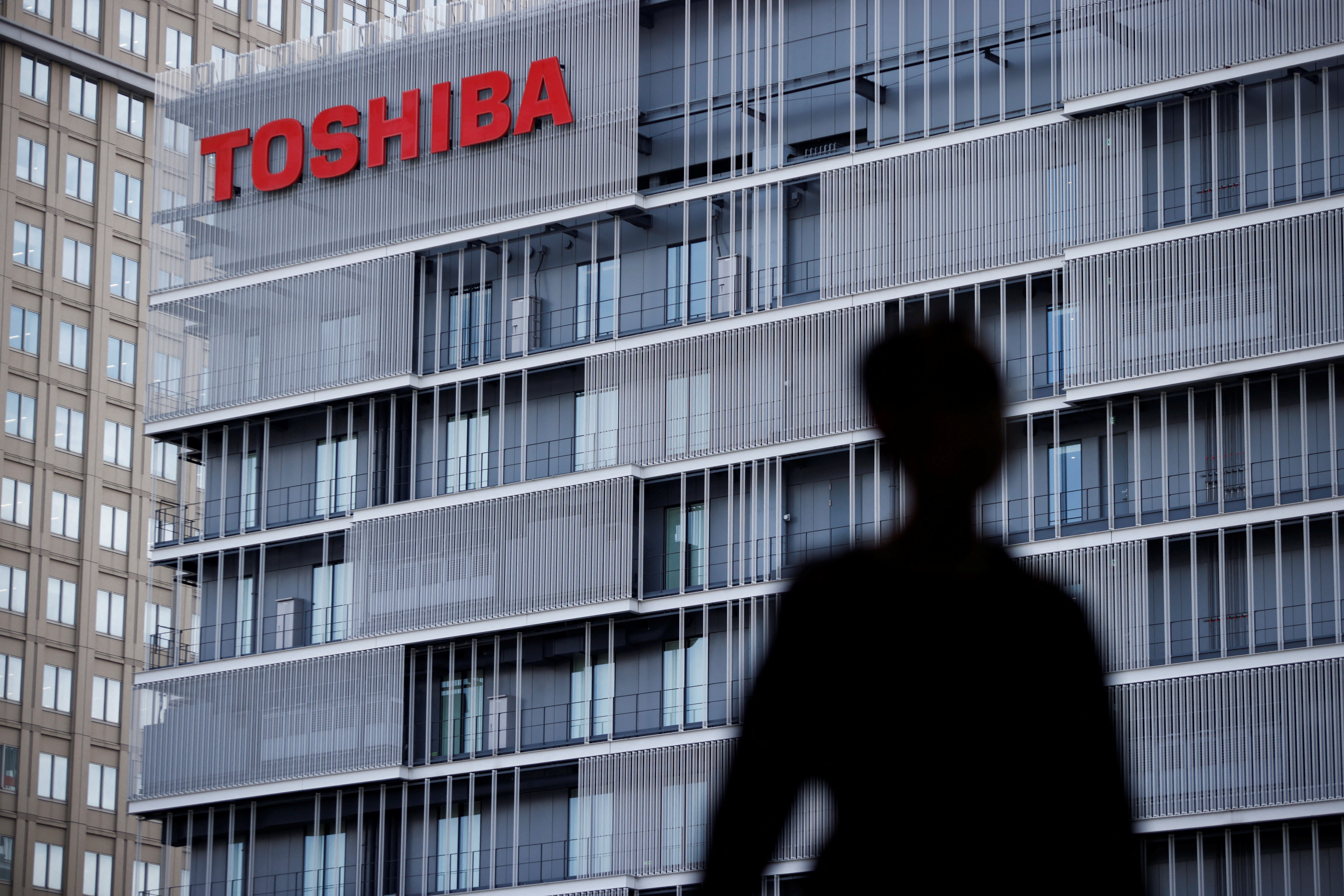In a significant development, the board of directors of Toshiba Corporation has strongly recommended that its shareholders accept a tender offer made by Japan Industrial Partners. This suggestion might result in a seismic $14 billion takeover, turning the Japanese behemoth into a privately held business. By putting its future in domestic hands, Toshiba hopes to reestablish stability and control after years of dealing with difficulties and conflicts with foreign activist shareholders. The specifics of the tender offer are examined in this article, along with the companies involved, the prospective effects of this choice, as well as the advantages and disadvantages of the planned buyout.

Credits: Reuters
The Tender Offer and Valuation:
The original purchase offer was approved by Toshiba’s board in late March, valued at 2 trillion yen ($14.31 billion) for the industrial group. To urge owners tender their shares, they thought the offer price of 4,620 yen per share was too low. Given the lack of a larger bid or rival offer, as well as unfavourable market conditions such a poor leveraged loan market and rising interest rates, the board has now come to the conclusion that the offer is “fair and reasonable.”
To facilitate Toshiba’s conversion to a privately held firm, the proposed tender offer is anticipated to go live in late July. By making this decision, the conglomerate may be able to concentrate on its long-term business strategy free from the attention and demands that come with being a publicly traded company.
Impact and Potential Benefits:
There are a number of possible advantages to taking Toshiba private through this purchase for the business, its shareholders, and the Japanese business environment. Over the past few years, Toshiba has encountered many difficulties, such as accounting scandals, substantial losses, and problems with corporate governance. By going private, Toshiba would have a solid management foundation that would enable the execution of a consistent business plan for long-term growth and change.
Given the current situation, the recommended buyout offers the best choice for shareholders. Accepting the offer lessens the likelihood that Toshiba’s share price will crash, which is a worry for activist shareholders even though Toshiba’s actual value might exceed the tender offer price. Given the current state of the market and Toshiba’s future uncertainty, it would be difficult to exit at a better price. Although some investors could view this as a squandered opportunity, stabilising Toshiba’s operations and reestablishing faith in the company’s future prospects are the main priorities.
The acquisition offers Toshiba the chance to strengthen its position in important markets including electronics and power plants. The business can adopt a longer-term perspective with a private ownership structure, matching its business strategy with customer needs and technological improvements. This adaptability can encourage creativity and responsiveness, allowing Toshiba to quickly respond to shifting market trends and keep a competitive edge.
Furthermore, Toshiba’s domestic relations are strengthened by the participation of prominent Japanese corporations in the takeover group. Collaborations and synergies between these companies may result in profitable alliances, extending Toshiba’s reach and opening up new growth prospects in a number of industries.
The Road Ahead and Potential Risks:
Although the suggested purchase offers Toshiba a promising future, there are hazards involved. Investors and shareholders must carefully weigh the possible outcomes and related uncertainties. The underlying value of Toshiba, according to detractors, exceeds the offer price, and they warn that going after larger returns includes a lot of danger. The difficulty lies in finding a balance between the potential gain and the current market circumstances and dangers involved in the buyout process.
Conclusion:
The board of Toshiba’s suggestion to accept a tender offer from Japan Industrial Partners is a significant step in the company’s effort to privatise. This action, which includes involvement from well-known Japanese corporations, has the ability to redefine Toshiba’s future by offering shareholders a path ahead in the face of difficult conditions while establishing a solid platform for development and transformation. To realise Toshiba’s full potential as a privately held company in the rapidly changing global market, thorough risk analysis and strategic execution will be crucial as the buyout moves forward.











